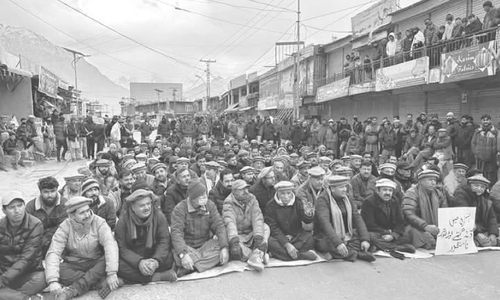KARACHI, May 3: The fixation of minimum export (MEP) price has failed to reduce rice prices in the wholesale market.
Before the fixation of MEP on Wednesday, the wholesale rice prices hit new peaks on Monday. The market was closed on Thursday on account of May Day, but no downward movement in prices was witnessed on Friday and Saturday.
According to daily rates issued by the wholesale commodity market, basmati kernel price peaked to Rs60-70 per kg from Rs45-65 per kg, the 386 Basmati hit Rs40-48 from Rs38-44 per kg, Basmati 385 Saila rose to Rs40-46 per kg from Rs35-42 per kg, Basmati Super surged to Rs55-65 from Rs40-55 per kg, Irri 6 Sindh went up to Rs34 from Rs28 per kg, Irri 9 Sindh increased to Rs38-40 per kg from Rs35-36 per kg last week.
In retail market, Basmati kernel is being sold at Rs105 per kg while its super quality is available at Rs100 per kg. The medium quality rice is priced at Rs50-60 per kg while low quality rice is selling between Rs35-45 per kg.
After lengthy negotiations with Rice Exporters Association of Pakistan (Reap), the government has fixed the MEP to protect domestic supplies and control prices at the time of shortage.
Karachi Wholesale Grocers Association Chairman Anis Majeed said that that the wholesale prices remained intact and the MEP was unlikely to help reduce rates in the local market.
When asked as to why the MEP has failed to make any impact on rice prices, he said either the exporters were fetching rates equal to MEP for all varieties of rice in global market or slightly more than that.
To make an impact on local prices, usually a ban is imposed but the government has avoided because it may result in losing the international market, he said, adding that imposition of regulatory duty along with the MEP would have resulted in price reduction.
Mr Anis said that the imposition of regulatory duty would have not hurt the exporters as they could have added it in the cost and the government would also have generated additional revenue. He said that the retailers had been lifting very small quantities because local buyers were also purchasing limited quantities.
A retailer said that as the wholesale market had been registering new prices after every few days, rice could not be sold at cheaper rates. Because of the higher prices, retailers had either stopped building their stocks or suspended bulk purchases, he said. Besides, the demand had also declined. Buyers were either purchasing low-quality rice or had reduced the quantity, he added.
Meanwhile, on Friday, Reap informed its members that all cargoes only with letter of credit established before April 30 would henceforth be allowed for export. All other contracts i.e. deferred payment, document against payment and cash against document shipments stood cancelled with immediate effect.














































Dear visitor, the comments section is undergoing an overhaul and will return soon.